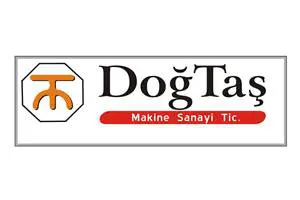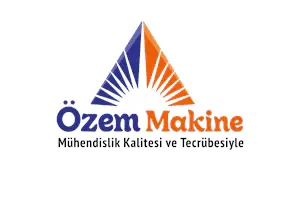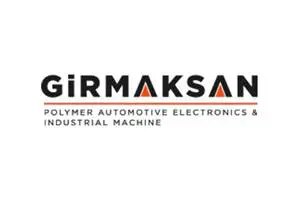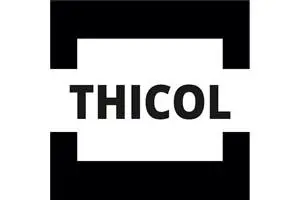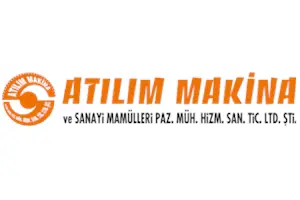Paint Manufacturing and Painting Machines
Paint manufacturing and painting machines are machines used in industrial production processes to automate painting operations. These machines are commonly used in automotive, furniture, metal, and other sectors. Paint manufacturing and painting machines are used to mix paint raw materials, adjust colors, and produce paints at the correct viscosity, while painting machines are designed to spray or apply the manufactured paints to surfaces.
These machines are usually equipped with high-precision control systems and automatic adjustments, which increase quality in the production process while reducing error rates. Additionally, painting machines often come with different spray methods suitable for different surfaces and various sizes of application tools, allowing for the painting of various products.
Generally, paint manufacturing and painting machines are important tools that increase efficiency in industrial production processes and ensure the quality of products.
How Do Paint Manufacturing and Painting Machines Work?
Paint manufacturing machines generally follow these basic steps. However, different steps and technologies can be used, especially for complex or customized production processes.
-
Mixing of Raw Materials: Paint manufacturing requires mixing various raw materials in specific ratios. Homogeneous mixing of materials such as pigments, binders, solvents, and additives ensures that the product has the desired quality and characteristics.
- Grinding and Dispersion: It is important to grind the mixture to the desired particle size and disperse pigment particles uniformly in the binder. These steps are critical for the color retention and homogeneity of the product.
- Control and Adjustment: During the manufacturing process, the product's viscosity, color tone, and other properties must conform to certain standards. Therefore, continuous monitoring and, if necessary, adjustment of the product are essential. Automatic control systems and measuring devices are used in this process.
Painting machines are used to apply paint to products' surfaces. They usually perform the following functions:
-
Spraying Technology: Paint is applied to the product's surface through spray guns. This provides a fast and homogeneous painting process.
- Drying and Baking: After the painting process, the products may need to be dried and hardened in an oven. This step increases the paint's durability and gives the products the desired appearance.
- Dosing and Control: It is essential to adjust and apply the correct amount of paint. Automatic dosing systems increase the precision of the painting process and minimize waste.
What Are Industrial Paint Machines?
Industrial paint machines are machines used in large-scale production facilities to apply paint for various industrial applications automatically or semi-automatically. These machines are designed to provide high efficiency, precision, and repeatability.
High Capacity: Industrial paint machines are generally designed to meet large volume production requirements. They can paint large parts or surfaces quickly.
Automation: Automatic paint spraying, drying, and other processes are often part of industrial paint machines. This reduces labor costs and optimizes production processes.
Precision: Industrial paint machines often have advanced paint spraying or coating technologies. This ensures high-quality and homogeneous results.
Various Applications: Industrial paint machines are often designed with flexibility to handle different types of paints and surfaces. This adapts to various industrial requirements.
Efficiency and Economy: These machines are generally designed to provide high efficiency and low operating costs. They can reduce production costs by producing less paint waste and requiring fewer labor.
The main purpose of industrial paint machines is to paint or coat large parts or surfaces quickly and efficiently. They are commonly used in various sectors such as automotive, metal processing, furniture manufacturing, plastic injection, and iron-steel industry.
What Are the Types of Paint Machines?
Paint machines vary according to different industrial needs and painting processes. Here are some common types of paint machines used:
-
Spray Guns: Guns used to spray paint onto a surface. They are designed to spray paint with compressed air or other propellants. They are commonly used in automotive, furniture, and metal industries.
-
Dip Painting Machines: Machines that apply paint by dipping the products into a tank. They are preferred for mass production of small parts.
-
Roller Painting Machines: Paint is applied to surfaces by rolling a drum or roller. These machines are commonly used in wall painting processes.
-
Brush Painting Machines: Painting machines used in small areas or detailed work. They can be operated manually or electrically and are suitable for precise painting operations.
-
Electrostatic Painting Machines: Paint particles are sprayed onto a surface that is electrostatically charged. This method increases paint adhesion and minimizes waste.
-
UV Painting Machines: Machines used to apply special paints that dry and harden quickly using UV light. They are commonly used in the furniture, metal, and plastic industries.
-
Mixing and Dosing Machines: Machines used to mix paint raw materials and dose them in specific ratios. These machines play an important role in the paint production process.
-
Paint Filling Machines: Used for packaging paint. These machines usually work automatically and fill paint products into bottles, cans, or other types of packaging.
-
Paint Tanks: Containers used to store and process paint raw materials. These tanks are generally made of stainless steel and are available in different sizes and capacities.
What is the Return on Investment for Paint Manufacturing Machines?
The return on investment for paint manufacturing machines varies depending on several factors and generally includes the following elements:
-
Increased Efficiency: Using machines automates and speeds up production processes. They can work faster and more accurately than manual processes. This increases production efficiency and allows the business to produce more products in a shorter time.
-
Less Labor Requirement: Automatic or semi-automatic machines reduce or eliminate processes that require manual labor. This reduces labor costs for the business.
-
Higher Quality and Less Waste: The precision and repeatability of machines increase product quality and reduce waste. Consistent results are achieved, and material waste is minimized.
-
More Product Variety: Some paint manufacturing machines offer flexible settings for different colors, tones, or coating types. This allows the business to respond faster to customer demands and increase market share.
-
Increased Competitive Advantage: Faster production, better quality control, and lower costs can enhance the business's competitive advantage. It provides an advantage to better respond to customer demands and better position in the market.
What Are the Prices of Paint Manufacturing and Painting Machines?
The prices of paint manufacturing and painting machines can vary depending on various factors. These factors include machine type, capacity, technical specifications, brand, and production method. The prices of a basic paint manufacturing machine or painting machine can vary. For example, machines with automatic functions, high capacity, and technologically advanced features generally come at higher prices, while simpler or manual machines may be more affordable. Paint manufacturing and painting machines can have an average price range of {price range}.
Prices can also vary with market research and negotiation skills. In some cases, discounts can be obtained when bulk purchases or long-term agreements are made. However, when choosing a machine, factors such as quality, performance, and after-sales support should be considered, not just the price. This can increase cost-effectiveness in the long run and provide a better return on investment.
To meet your needs for new or used paint manufacturing and painting machines, you can buy from reliable manufacturers or authorized suppliers and also get support from authorized services.







